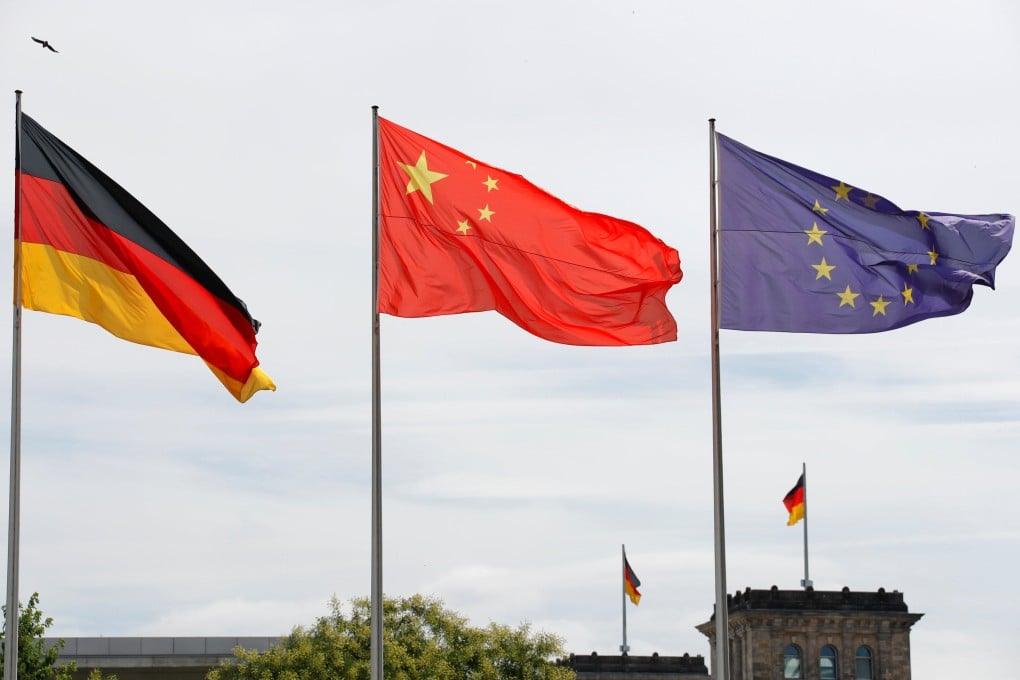Advertisement
Beijing asks German businesses to ‘help Europe view China correctly’
- German investors and business owners with a stake in China have grown increasingly concerned amid diplomatic strife and zero-Covid disruptions
- China’s foreign ministry similarly asked American businesses in December to play a ‘bridging role’ between their two countries
Reading Time:3 minutes
Why you can trust SCMP
31

The German business community in China is being called on to add impetus to Beijing’s attempt at cooperation and improved relations with the European Union, as panicky investors have been caught up in diplomatic tensions and seen their businesses disrupted by China’s zero-Covid strategy.
During a meeting with several heads of the German Chamber of Commerce in China on Monday, deputy foreign minister Deng Li acknowledged their “active contribution” in economic cooperation and said the chamber serves as “a factor of stability” in bilateral relations.
“We hope the Chamber of Commerce and German enterprises continue to play an active role in deepening bilateral pragmatic cooperation – introducing the vigour and potential of Chinese markets to Europe and Germany, and help Europe view China correctly,” Li said in a statement on Monday.
Advertisement
The meeting was held as 2022 marks the 50th anniversary of diplomatic relations between China and Germany, and after bilateral relations were strained last year when German businesses warned that China’s attempt to target Lithuania over its relationship with Taiwan could force them to close manufacturing operations in Lithuania, a member of the EU trade bloc.
Beijing and Brussels have also been at odds over a variety of issues in the past two years, including human rights abuses in Xinjiang and the imposition of Hong Kong’s national security law. As a result, a hard-negotiated comprehensive agreement on investment between China and the EU was shelved last year.
Advertisement
Advertisement
Select Voice
Choose your listening speed
Get through articles 2x faster
1.25x
250 WPM
Slow
Average
Fast
1.25x